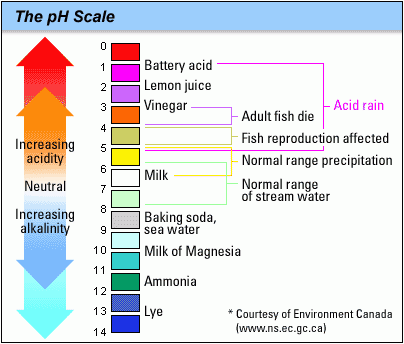 |
|
FAQ
Do you have questions or concerns about water usage? Is your water usage too high? This page provides some tips on conserving water and more.
Yard Restoration
If Gladeville Utility District has to make a main line or service repair and your yard is disturbed, it will be restored to the original state as soon as possible. Please keep in mind it cannot be restored to the original state the day of the repair due to the area being saturated with water. Also, if the repair area is seeded and strawed, do not mow until the grass is fully established. If mowed prior to establishment, the District will not be responsible for seeding and strawing again.
Water Heater Problems?
Hot water heater pop off valve giving you a fit? It could be a faulty pop-off valve. If you have already checked this out, check to make sure that the temperature isn’t turned up too high. Expansion caused by the heated water could be causing the pressure to build up too high in a closed water line system. Another rare, but possible condition, is if the problem just started after repairing or replacing parts to the holding tank of a toilet at your residence. Most older styles have a floating ball connected to an arm for the water level cutoff. This style can actually allow surging water pressures to be released at the holding tank of the toilet instead of at your hot water heater. Some newer styles of water level cutoffs do not allow this to occur.
None of these ideas help? Then you may want to look into purchasing an expansion tank. This should hold and siphon the water that is spilling from the pop off valve and minimize any damages that could occur.
Leaking Toilets?
Do you have a toilet that you suspect is leaking? Here’s one way to find out. Take some food coloring or kool-aid, anything safe and potable with a color additive, and pour it into the holding tank of the toilet. If the color additive makes its way to the inside of the bowl, the flap in the holding tank is faulty or the chain may just need adjusting. It's not unusual to see increases in water usage of up to 20,000 gallons a month or more because of a faulty toilet flapper. It really brings a new light to the old saying, “you're flushing your money down the toilet.”
Hard Water / Reduced Water Flow At Some Faucets or Washing Machine?
The area we live in is notorious for hard water. "Hard Water" was originally termed as such due to it being more difficult to work with than soft water. It takes more soap, shampoo and detergent to do the same job that soft water can do with less. With all of the limestone and minerals in our area that are dissolved into the water, its presence is just a natural occurrence, but we are not alone. According to the U.S. Geological Survey, at least 85% of the U.S. has hard water. After treatment, the water coming to your home is categorized as "hard or very hard". Calcium deposits are a very common thing to find and can be very hard on your appliances that use water. These deposits look like a white film or small white stones that you can crush between your fingers. They can clog up sink and shower heads, clog up the screens on your washing machine hoses and dishwasher, and even build up and fill your entire hot water heater. If you're having trouble with low flows coming through only certain sinks or appliances, you may want to start your troubleshooting by unscrewing a few faucet screens and see if there is any buildup of calcium that needs removing.
A water softener is also an option that you might want to look into. It takes the calcium or magnesium from the water and replaces it with either sodium or potassium. It will eliminate the calcium deposits and the softer water will be easier on your appliances. It may even add some lifetime to your appliances but don't forget, the softener will require some maintenance.
pH Scale

Water Pressure and Pressure Regulators?
Pressure regulators are a necessity for most homes in our area, and the main reason for this is the varying elevations in the hills and valleys that surround us all.
The Gladeville Utility District pumps water to elevated or ground level water storage tanks atop hills to assure an adequate water pressure to every residence. Therefore, the water pressure to your residence is primarily determined by the elevation of the water surface in the storage tank in your area in comparison to the elevation of your home.
To make it simple: It takes 1 pound of water pressure to move water 2.31 feet in elevation. If you have 100 pounds of pressure at your residence, you live about 231 feet below the level of the water surface in the storage tank in your area. If you have 10 pounds of pressure, you live about 23 feet below the level of the water surface in the storage tank in your area.
To serve water to a residence, the District must be able to maintain a water pressure of at least 20 pounds at the location of the residence's water meter. Therefore with all the hills and valleys causing so many differences in elevation in our area and for the District to maintain an adequate pressure across our entire water system, some extremes in water pressure to residences do occur.
This is where a water pressure regulator comes into use. Most regulators you find at a local hardware or plumbing stores will already be preset for an outlet water pressure between 50 and 70 pounds. These pressure levels are easier on your plumbing fixtures compared to having 120 pounds of pressure and also give adequate pressure for watering or showering.
If you are constantly having to do repair work on sink fixtures or toilets, it may possibly be due to high water pressure and the installation of a pressure regulator may be your best bet.
The Gladeville Utility District does not install pressure regulators. We are here to supply the water to your home and to try and serve as many people as possible in our District. We do not determine how much pressure you as a customer may want or need.
Do I Have a Leak?
How can I tell if I have a leak? If your water bill seems high and you think you might have a leak, here are some tips on checking that out. First, make sure that no one is using water in your home and then go and read your water meter. Write the reading down and then re-read the meter in about 15 to 20 minutes to see if any of the numbers on the meter have changed. There is also a leak indicator on your water meter and it is located in the center of the dial. If the numbers have changed since your first reading, or if the leak indicator is moving and there is no one using water, there is a leak somewhere in either your service line or house plumbing. If you have a cutoff valve near your house, turn the water off at that location and go back to see if the leak indicator is still moving. If it is, then you have a leak in your service line between the meter and the valve. If it is not moving, the leak is most likely somewhere in your house plumbing.
Water softener issue? If you are experiencing low pressure and have a water softener, your water softener could be causing the issue. Try bypassing the water softener and see if it takes care of the low-pressure issue. If the low pressure is resolved, your water softener should be serviced by a licensed plumber.
Where is my water meter? The water meter is typically located at the front of the property below ground in a meter box covered with a lid labeled “Water.” They may be located in the common grassy area between driveways if you live in a subdivision.
What do I do to keep my pipes from freezing? The water inside pipes can freeze within hours if exposed to cold air, especially when temperatures are below freezing and remain below freezing for an extended time. As freezing water expands, it causes the pressure inside pipes to increase, possibly leading to pipes bursting. Both plastic and copper pipes can burst when they freeze. Preventative measures when freezing temperatures exist include, leaving an interior faucet slowly dripping, making sure all exposed water pipes are well insulated and by covering exterior faucets/spigots with insulated weather guards.
There are flags and/or paint marks on or near my property. What does that mean? State Law requires that anyone who is about to engage in digging, excavation, moving of earth, or any other type of activity that disturbs the earth to notify Tennessee One Call of their intent to dig as they may be in danger of damaging the underground facilities. If you have paint markings, flags, or stakes near your yard, a Tennessee One Call was likely called in for your area. For more information, please refer to the Tennessee One Call Website.
Do I get an adjustment on my bill when I fill my swimming pool? Gladeville Utility District does not offer adjustments on your water bills when filling swimming pools.